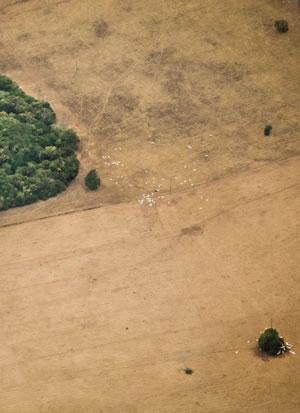A combination of growing awareness, an emerging movement for change and the prospect for political breakthrough all signal that the world is waking up to the scale of the threat. It is not only among activists and campaigners that there is an emerging sense of urgency, but also in the boardrooms of major consumer goods companies, multi-billion-dollar investment houses and among some governments, not least because of the growing realisation that properly functioning natural systems are vital for people’s health, wealth and security.
Here in the UK, public demand is also growing. For example, the political think tank Bright Blue published a report in the wake of the UK’s 2017 general election setting out how one reason the governing Conservative party did poorly among younger voters was its apparent lack of commitment to environmental causes. These findings help explain the subsequent very welcome rise in profile of environmental issues in politics, laying the foundations for stronger cross-party consensus.
This shift in the public mood offers a rare opportunity to build a new movement for Nature, one that could create a bigger political and public space for action. The information and research telling us what governments and companies need to do has been in existence for years. What’s been missing is the public demand for action, and the political will to deliver it.
But just as in 2008 there was a political moment that allowed the passage of the Climate Change Act, the public mood is shifting in favour of change. We need to grasp this moment to deliver strong new environmental laws at home, in the form of a new environment act requiring the recovery of Nature, alongside new farming policies that promote environmental restoration.
National leadership in key countries, including the UK, would help take forward proposals for a Global Deal for Nature and People, to be agreed in 2020. This would be a commitment from heads of state when they meet at the 75th United Nations General Assembly, spelling out how it is no longer rational or acceptable to degrade Nature, and instead placing us on a path toward the restoration of the natural world. Underpinning this would be a series of agreements forged that year in a series of important summits, including new national targets under the Convention on Biological Diversity, renewed ambition for the Paris Agreement on climate change, a strengthening of the environmental commitments in the Sustainable Development Goals, and a new agreement on the conservation of wildlife in the high seas.
This is an ambitious agenda, and needs to be. With sufficient public support and political will, we can halt the long-term decline of Nature and begin restoring the planet that sustains us. Whether world leaders rise to the challenge is a matter of choice, including in individual countries, such as the UK, which if it wished could show the kind of leadership needed.
The scale of human impacts on the Earth is now utterly unsustainable. The question now is not whether the world is under threat, but rather whether we will act in time. We need to join together in a movement to demand that the world take action and give us a Global Deal for Nature and People.







